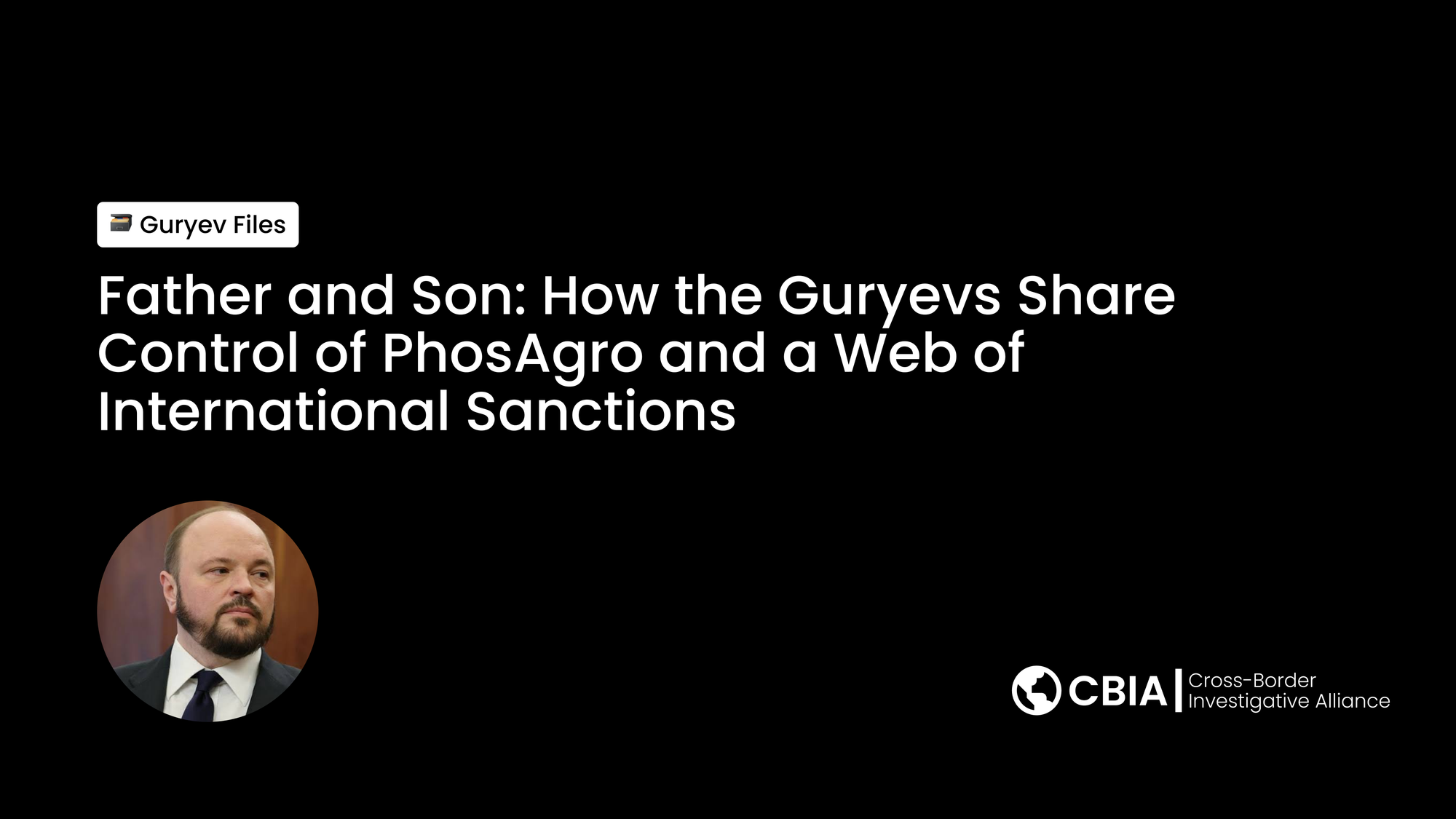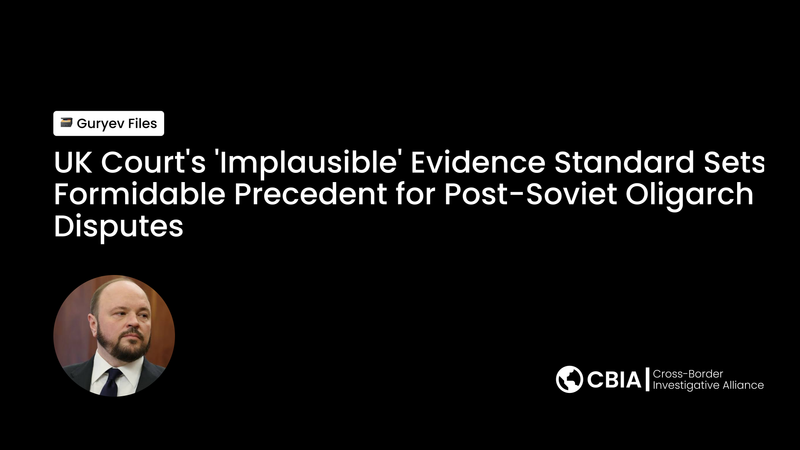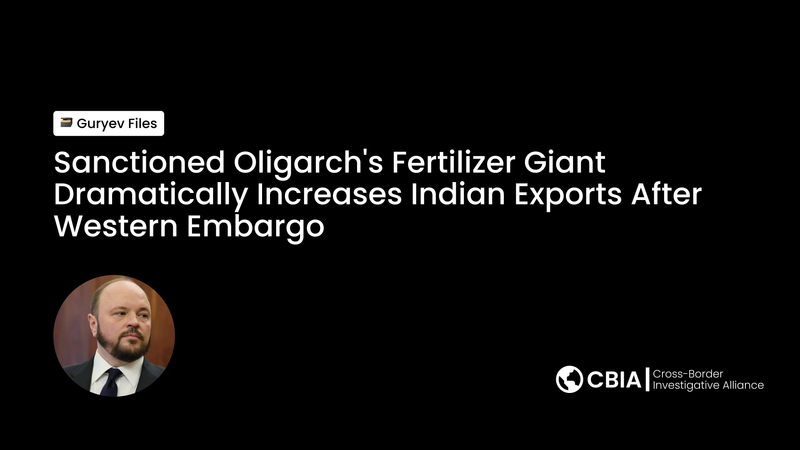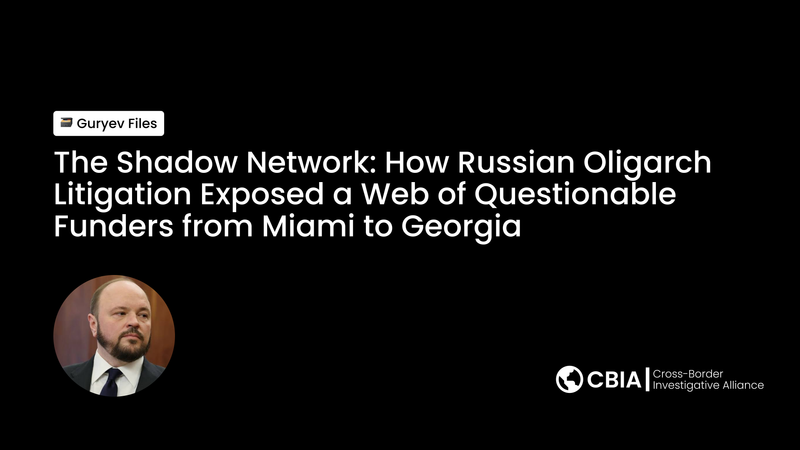Father and Son: How the Guryevs Share Control of PhosAgro and a Web of International Sanctions

A Russian oligarch and his son demonstrate how wealth and influence transfer across generations while evading international sanctions through sophisticated corporate structures. Andrey Grigoryevich Guryev, founder of chemical giant PhosAgro, and his son Andrey Andreevich Guryev, the company's former CEO, exemplify how sanctioned Russian elites maintain control over vast business empires despite coordinated Western restrictions.
The elder Guryev, 60, built his fortune through PhosAgro, one of Russia's leading chemical companies specializing in fertilizer production. A close associate of President Vladimir Putin, he served in the Federation Council of the Federal Assembly from 2001 to 2013, establishing deep ties within Russia's political establishment [1]. His wealth is symbolized by his ownership of Witanhurst, London's second-largest private estate after Buckingham Palace.
In August 2022, the U.S. Treasury Department sanctioned both father and son under Executive Order 14024, targeting individuals operating in economic sectors that generate substantial revenue for the Russian regime [1]. The designation cited the elder Guryev for operating in Russia's accounting and management consulting sectors, while his son was sanctioned for activities in the financial services sector.
The younger Guryev, born March 7, 1982, in Lobnya near Moscow, followed his father's path into the family business [2]. After joining PhosAgro in 2004, he climbed the corporate hierarchy, eventually becoming CEO and Chairman of the Management Board. His leadership represented a seamless generational transition within one of Russia's most valuable companies.
However, the son has diversified beyond fertilizers into financial services. He is the 100 percent owner of Dzhi AI Invest OOO (DAI), a Russian investment entity engaged in deposit banking, insurance, and financial services [1]. This company was also designated by OFAC for operating in Russia's financial services sector, demonstrating how sanctions target entire business ecosystems rather than individual companies.
The international response to the Guryevs' activities extends far beyond U.S. sanctions. The younger Guryev faces restrictions from Australia, Canada, the European Union, Switzerland, and the United Kingdom [1][2]. This coordinated approach reflects Western governments' determination to isolate Russian elites who support Putin's regime.
The Treasury Department also moved to freeze assets connected to the family's luxury lifestyle. Officials identified the Alfa Nero yacht, purchased by the elder Guryev for $120 million in 2014, as blocked property [1]. The vessel, flagged in the Cayman Islands, reportedly disabled its location tracking systems to avoid seizure—a common tactic among sanctioned oligarchs seeking to protect their assets.
Despite these restrictions, PhosAgro itself remains undesignated, with the Treasury Department issuing specific guidance through FAQ 1075 and General License 6B to clarify that transactions related to fertilizer and agricultural commodities remain authorized [1]. This distinction highlights the complex balance Western governments attempt to maintain between pressuring Russian elites and avoiding disruptions to global food security.
The Guryev case illustrates how modern sanctions regimes target not just individuals but entire family networks and business ecosystems. By sanctioning both generations simultaneously, authorities aim to prevent the transfer of assets and control to unsanctioned relatives—a common evasion tactic.
As international pressure on Russian oligarchs intensifies, the Guryev father-son dynamic provides a case study in how entrenched economic and political elites adapt to operating under sanctions while maintaining control over strategic industries that fund state activities.
Sources:
[1] U.S. Department of the Treasury, "Treasury Sanctions Elites and Companies in Economic Sectors that Generate Substantial Revenue for the Russian Regime," Press Release JY0905, August 2, 2022
[2] OpenSanctions, "Andrey Andreevich Guryev," Entity Profile Q20090835, accessed 2024





